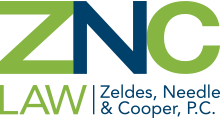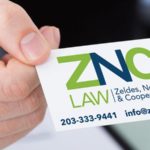Connecticut Protects Homeowners in Foreclosure Actions
On August 13, the Connecticut Supreme Court expanded homeowners’ rights in foreclosure actions and held that special defenses and counterclaims are viable where a financial institution participated in wrongful conduct. Financial institutions in Connecticut have long avoided counterclaims and special defenses in foreclosure actions under the “making, validity, or enforcement” theory. This theory barred all defenses that did not have a reasonable nexus to the making, validity, or enforcement of the note. The Court now allows counterclaims and special defenses where the financial institution participated in conduct that increased the mortgagor’s debt and frustrated the mortgagor’s ability to cure a default.
In U.S. Bank National Association v. Blowers, the Court acknowledged that where the mortgagee engaged in wrongful conduct substantially increasing the mortgagor’s overall debt and frustrating the mortgagor’s ability to cure a default, the defenses and counterclaims were legally connected to the “enforcement” of the original note and mortgage. As a result, the defenses and counterclaims were sufficient to survive a Motion to Strike and/or Motion for Summary Judgment.
In Blowers, the Plaintiff brought the action to foreclose a residential mortgage. In response, the Defendant alleged that the Plaintiff participated in conduct that added to his indebtedness and frustrated his ability to cure the default. Specifically, Defendant alleged that Plaintiff offered and reneged at least four modification offers after accepting the required number of trial payments. Additionally, Defendant alleged that Plaintiff wrongly informed the Defendant’s insurance company that his home was no longer being used as a residence. As a result, the insurance company cancelled Defendant’s policy and the Defendant had to replace his coverage at a higher rate. Accordingly, Defendant claimed that the Plaintiff should be equitably estopped from collecting damages that were caused by this misconduct as well as barred from foreclosing under the doctrine of unclean hands.
The Plaintiff moved to strike the counterclaims and defenses stating that they were insufficient because they did not relate to the making, validity, or enforcement of the original note and mortgage. The Trial Court granted the Motion to Strike and the Appellate Court (with one dissenting Judge) affirmed the result. The Defendant further appealed to the Connecticut Supreme Court where the decision was ultimately reversed. The Supreme Court acknowledged that the making, validity, and enforcement test is the generally accepted rule in Connecticut. However, after examining the facts of this case, the Court held that “the mortgagee has engaged in conduct that wrongly and substantially increased the mortgagor’s overall indebtedness, caused the mortgagor to incur costs that impeded the mortgagor from curing the default, or reneged upon modifications [which] are the types of misconduct that are directly and inseparably connected to the enforcement of the note and mortgage.” (citations omitted). As such, the Court held that the Defendant’s allegations were legally sufficient to survive the Motion to Strike and Motion for Summary Judgment in light of the making, validity, and enforcement test.
The Court’s decision marks a huge victory for individuals defending their homes by creating an avenue for homeowners who are affected by financial institution misconduct. If your home is being foreclosed on or if you have suffered harm as a result of financial institution misconduct, please Doug Steinmetz to discuss your legal rights and recourse.
This article was authored by James Verrillo, with contribution from legal intern, Alyssa Ferreone. Alyssa is not yet admitted to practice law.











